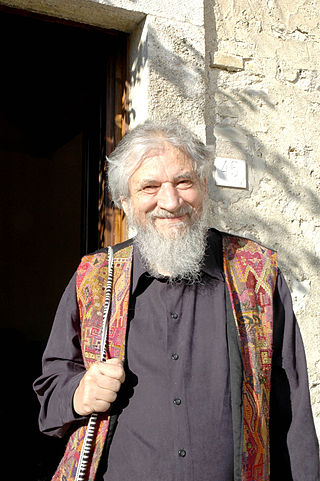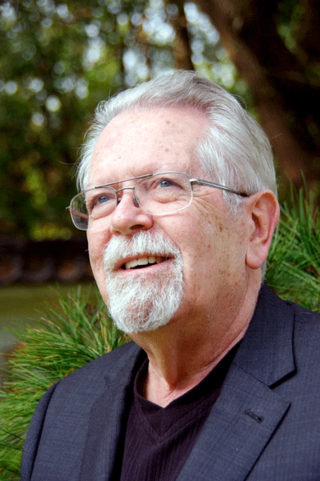Related Research Articles

Fortune telling is the unproven spiritual practice of predicting information about a person's life. The scope of fortune telling is in principle identical with the practice of divination. The difference is that divination is the term used for predictions considered part of a religious ritual, invoking deities or spirits, while the term fortune telling implies a less serious or formal setting, even one of popular culture, where belief in occult workings behind the prediction is less prominent than the concept of suggestion, spiritual or practical advisory or affirmation.

Crystal gazing or crystallomancy is a method for seeing visions achieved through trance induction by means of gazing at a crystal. Traditionally, it has been seen as a form of divination or scrying, with visions of the future and of the divine, though research into the content of crystal-visions suggest the visions are related to the expectations and thoughts of the seer.

Spiritualism is a social religious movement popular in the nineteenth and early twentieth centuries, according to which an individual's awareness persists after death and may be contacted by the living. The afterlife, or the "spirit world", is seen by spiritualists not as a static place, but as one in which spirits continue to interact and evolve. These two beliefs—that contact with spirits is possible, and that spirits are more advanced than humans—lead spiritualists to the belief that spirits are capable of advising the living on moral and ethical issues and the nature of God. Some spiritualists follow "spirit guides"—specific spirits relied upon for spiritual direction.

Claudio Benjamín Naranjo Cohen was a Chilean psychiatrist who is considered a pioneer in integrating psychotherapy and the spiritual traditions. He was one of the three successors named by Fritz Perls, a student of Oscar Ichazo who originally developed the Enneagram of Personality, and a founder of the Seekers After Truth Institute. He was also an elder statesman of the US and global human potential movement and the spiritual renaissance of the late 20th century. Naranjo authored several books.

Alice Ann Bailey was author of about 25 books on Theosophy and among the first writers to use the term New Age. She was born Alice La Trobe-Bateman, in Manchester, England and moved to the United States in 1907, where she spent most of her life as a writer and teacher.
Robert Evan Ornstein was an American psychologist, researcher and author.

John Gordon Melton is an American religious scholar who was the founding director of the Institute for the Study of American Religion and is currently the Distinguished Professor of American Religious History with the Institute for Studies of Religion at Baylor University in Waco, Texas where he resides. He is also an ordained minister in the United Methodist Church.
Timothy James "Matthew " Fox is an American priest and theologian. Formerly a member of the Dominican Order within the Catholic Church, he became a priest in the Episcopal Church following his expulsion from the order in 1993.

Catherine Anna Yronwode is an American writer, editor, graphic designer, typesetter, and publisher with an extensive career in the comic book industry. She is also a practitioner of folk magic.
The New Thought movement is a new religious movement that coalesced in the United States in the early 19th century. New Thought was seen by its adherents as succeeding "ancient thought", accumulated wisdom and philosophy from a variety of origins, such as Ancient Greek, Roman, Egyptian, Chinese, Taoist, Hindu, and Buddhist cultures and their related belief systems, primarily regarding the interaction among thought, belief, consciousness in the human mind, and the effects of these within and beyond the human mind. Though no direct line of transmission is traceable, many adherents to New Thought in the 19th and 20th centuries claimed to be direct descendants of those systems.

Unarius is a non-profit organization founded in 1954 in Los Angeles, California, and headquartered in El Cajon, California. The organization purports to advance a new "interdimensional science of life" based upon "fourth-dimensional" physics principles. Unarius centers exist in Canada, New Zealand, Nigeria, the United Kingdom, and various locations in the United States.

Deja Vu Services, Inc., is an American company that operates nearly 200 strip clubs in the United States, United Kingdom, Australia, France, Canada, and Mexico.
Richard Moore is an American writer and artist of comic books. His published titles include Far West, Boneyard and Deja Vu.
Walter Truett Anderson is an American political scientist, social psychologist, and author of numerous non-fiction books and articles in newspapers and magazines.

Spiritualism is a metaphysical belief that the world is made up of at least two fundamental substances, matter and spirit. This very broad metaphysical distinction is further developed into many and various forms by the inclusion of details about what spiritual entities exist such as a soul, the afterlife, spirits of the dead, deities and mediums; as well as details about the nature of the relationship between spirit and matter. It may also refer to the philosophy, doctrine, or religion pertaining to a spiritual aspect of existence.
Fenwicke Lindsay Holmes (1883–1973) was an American author, former Congregational minister, and Religious Science leader. The brother of Ernest Holmes, Fenwicke is widely recognized for being an important factor in the establishment of Religious Science and the founding of the United Centers for Spiritual Living. Fenwicke is recognized as an important figure in the development of the New Thought movement in Japan in particular Seicho-no-Ie.

Phyllis Natalie Tickle was an American author and lecturer whose work focuses on spirituality and religion issues. After serving as a teacher, professor, and academic dean, Tickle entered the publishing industry, serving as the founding editor of the religion department at Publishers Weekly, before then becoming a popular writer. She is well known as a leading voice in the emergence church movement. She is perhaps best known for The Divine Hours series of books, published by Doubleday Press, and her book The Great Emergence- How Christianity Is Changing and Why. Tickle was a member of the Episcopal Church, where she was licensed as both a lector and a lay eucharistic minister. She has been widely quoted by many media outlets, including Newsweek, Time, Life, The New York Times, USA Today, CNN, C-SPAN, PBS, The History Channel, the BBC and VOA. It has been said that "Over the past generation, no one has written more deeply and spoken more widely about the contours of American faith and spirituality than Phyllis Tickle."

James Martin Peebles was an American physician, prolific author and organizer of many professional, medical, and psychic/spiritualist religious associations.
Theresa Cheung is an English author who writes on the subjects of spirituality, dreams, and the paranormal.
Beatrice Anne Gehman was an American psychic medium and the pastor of The Center for Spiritual Enlightenment, a Spiritualist church that she founded. She was one of the two main subjects of the book The Priest and the Medium: The Amazing True Story of Psychic Medium B. Anne Gehman and Her Husband, Former Jesuit Priest Wayne Knoll, PhD, by spiritual teacher and author Suzanne Giesemann. She was also featured in the HBO documentary by Steven Cantor, "No One Dies in Lily Dale."
References
- 1 2 Kenneth J. Garcia Rev. Lewis S. Bostwick SFGate.com , March 28, 1995
- ↑ You Are Psychic: The Art of Clairvoyant Reading & Healing, Debra Lynne Katz, 2004, Llewellyn Publications, p. 5, ISBN 0-7387-0592-6
- 1 2 Cadonna M. Peyton New Breed of School Cultivates the Seer Within Los Angeles Times January 09, 2000
- ↑ PONEDEL, David SFGate.com , September 21, 2010
- ↑ Employer Search Results: Berkeley Psychic Institute, California Employment Development Department LaborMarketInfo
- ↑ David Lazarus An Unpredictable Business / Professional psychics face same challenges as other entrepreneurs SFGate.com , March 25, 2000
- ↑ The Encyclopedia of Cults, Sects, and New Religions, James R. Lewis, Prometheus Books, 2002, p. 191, ISBN 1-57392-888-7
- ↑ Channeling: Investigations on Receiving Information from Paranormal Sources, Jon Klimo, 1998, North Atlantic Books, pp, 162-163, ISBN 1-55643-248-8